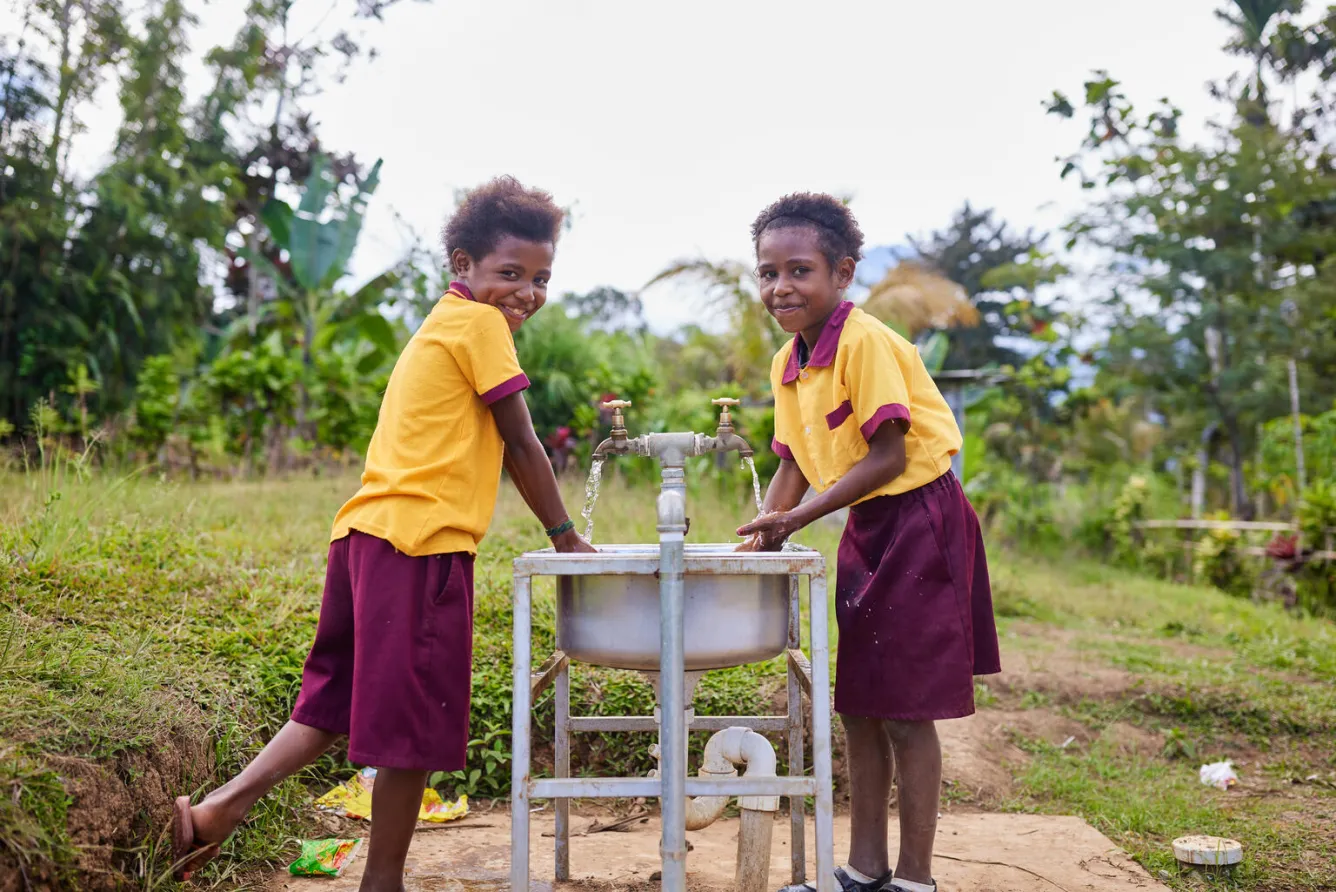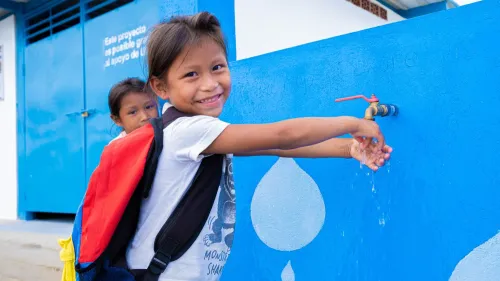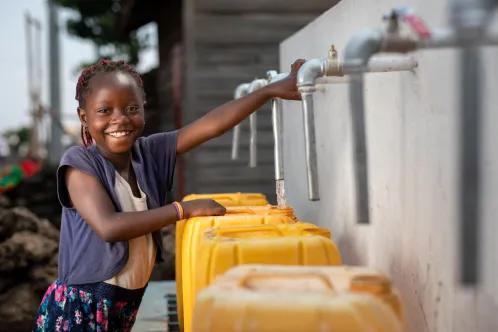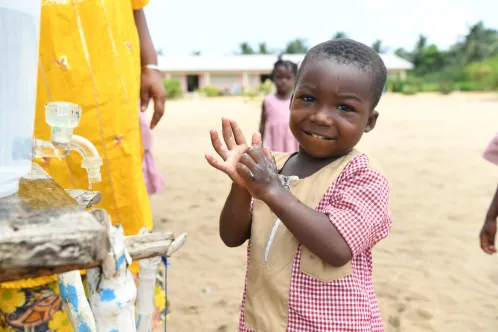Access to safe water services in schools improves children’s health and well-being
When children have access to safe water, toilets and soap for handwashing at school, they have a better environment to study, learn, and realize their full potential.
But many schools around the world lack proper water, sanitation or hygiene services. From lack of functional toilets to limited hygiene education, children find themselves at greater risk of contracting waterborne diseases leading them to miss school or drop out altogether.
- 3 in 10 schools globally do not have access to clean and safe water, impacting 546 million children;
- 3 in 10 schools globally do not have basic sanitation services, impacting 539 million children;
- 4 in 10 schools globally do not have basic hygiene services, such as handwashing facilities, impacting 802 million children.
UNICEF is helping provide safe water, sanitation facilities and hygiene education in schools to ensure children have the best learning environment possible.
The importance of menstrual hygiene in schools
Girls especially run the risk of missing out on education due to a lack of appropriate sanitation and hygiene services. Schools often lack the supplies and sanitation facilities such as gender-specific toilets and menstrual pads that girls need for managing their periods.
Shame, stigma and misinformation may discourage girls from attending school while menstruating and prevent schools from teaching healthy attitudes about menstruation. Many girls stay home to avoid being teased, causing them to miss out on opportunities.
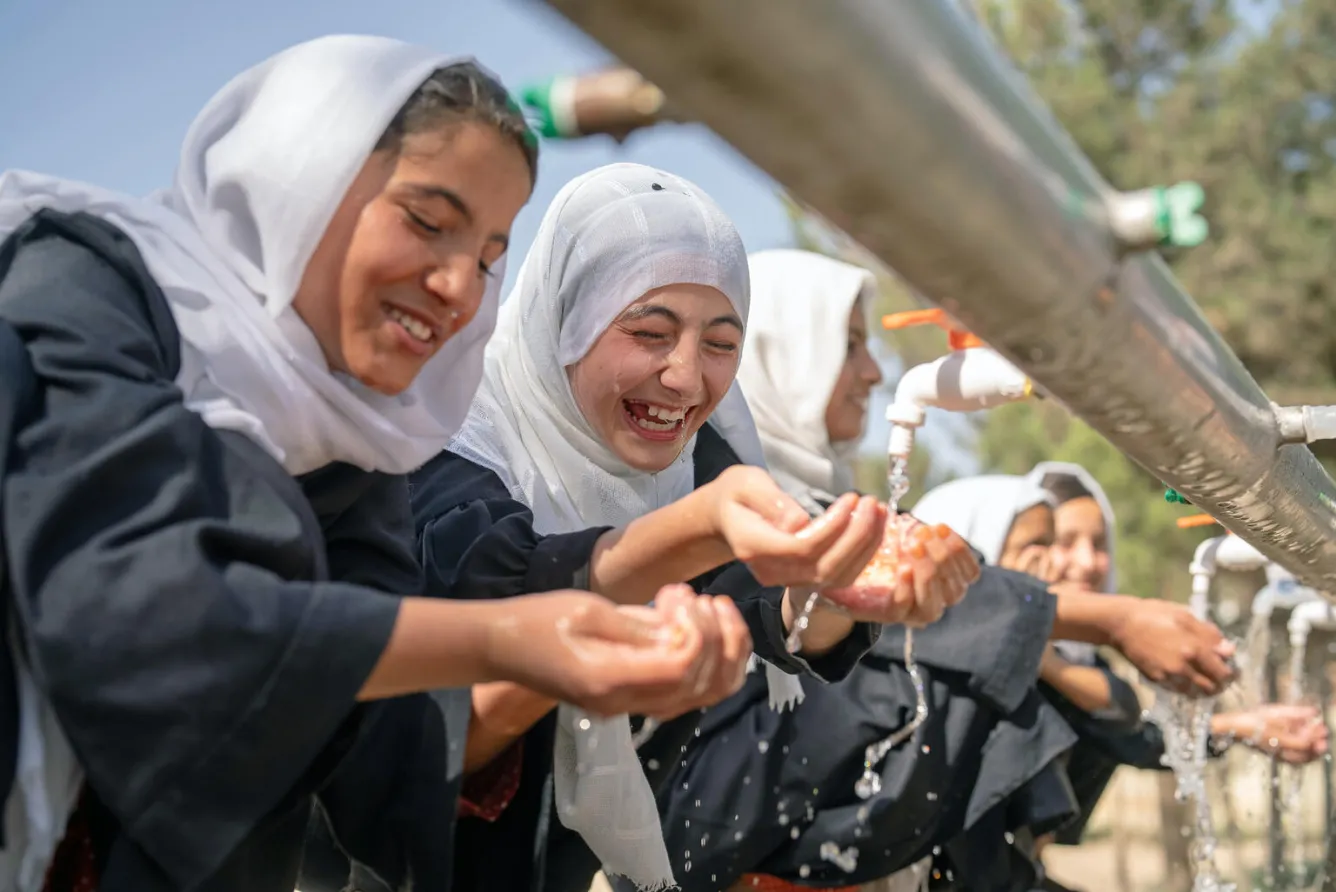
UNICEF’s work in providing water, sanitation and hygiene services in schools
UNICEF supports over 100 countries in establishing and rehabilitating water, sanitation and hygiene facilities in schools. We work closely with schools to help educate children about health and hygiene to protect them from getting waterborne diseases.
We support menstrual health and hygiene in schools by constructing private, secure sanitation and washing facilities as well as menstrual pad disposal facilities. We also provide education and support services that help more girls better manage their menstruation hygiene.
